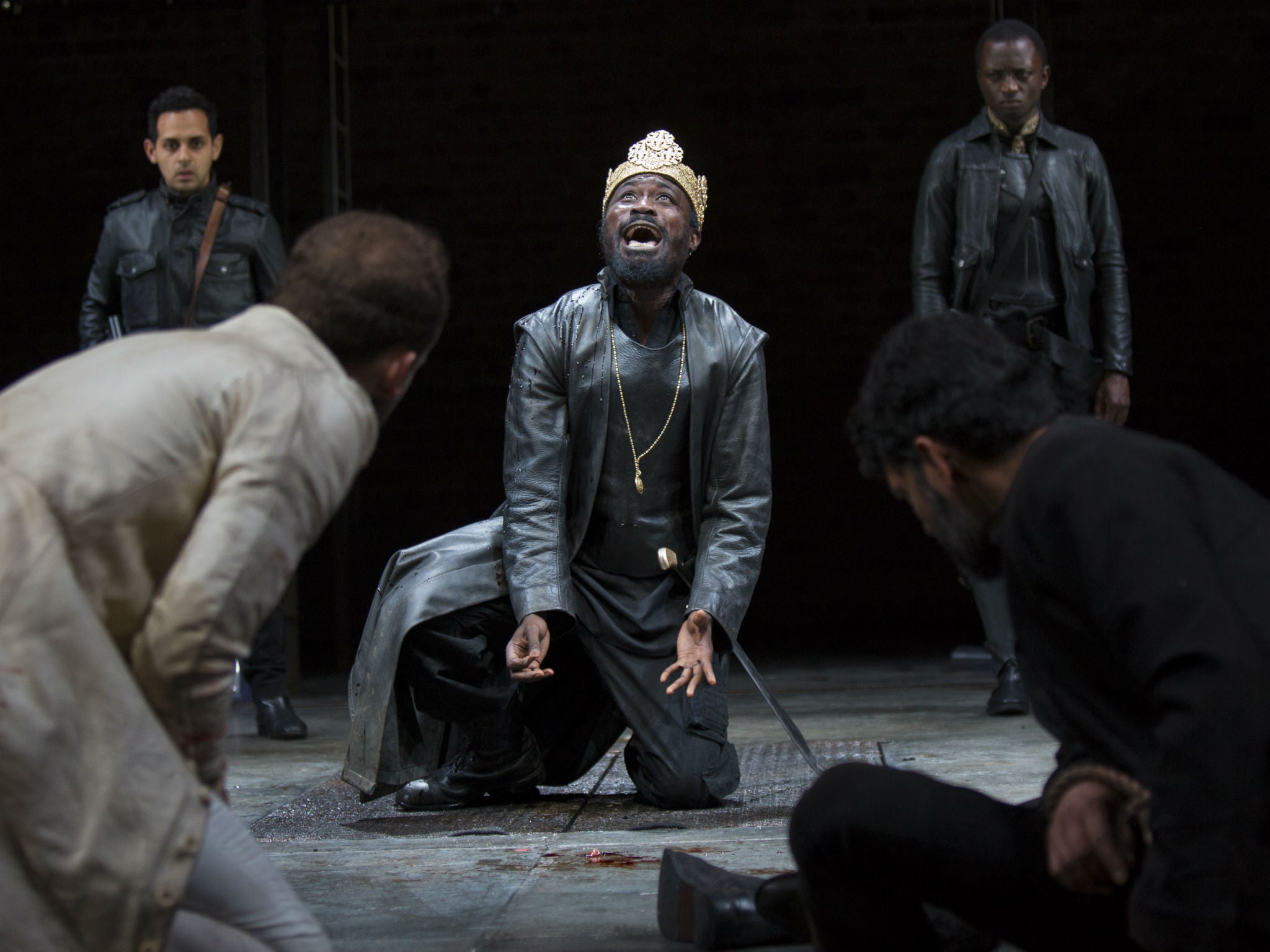Tamburlaine, Swan Theatre, Stratford-upon-Avon, review: A vivid and incisive version suggesting resonances with our own age of tyrants
A stimulating, fluent and strongly cast production that’s trenchantly alive to Christopher Marlowe’s provocative comedy

Your support helps us to tell the story
From reproductive rights to climate change to Big Tech, The Independent is on the ground when the story is developing. Whether it's investigating the financials of Elon Musk's pro-Trump PAC or producing our latest documentary, 'The A Word', which shines a light on the American women fighting for reproductive rights, we know how important it is to parse out the facts from the messaging.
At such a critical moment in US history, we need reporters on the ground. Your donation allows us to keep sending journalists to speak to both sides of the story.
The Independent is trusted by Americans across the entire political spectrum. And unlike many other quality news outlets, we choose not to lock Americans out of our reporting and analysis with paywalls. We believe quality journalism should be available to everyone, paid for by those who can afford it.
Your support makes all the difference.The mass-murdering protagonist of Christopher Marlowe’s play may claim to be the “scourge of God”, which is disputable by the terms of his own creed, or lack of it. He’s certainly the megalomaniac’s megalomaniac.
The dramatist was only 23 when he wrote this piece about the titular Scythian shepherd who rises to carve out a vast empire across the length and breadth of Asia. It was the first big hit of the Elizabethan stage, centring on a hero who threatens the world “with high astounding terms”, and it established the iambic pentameter as the central, sonorous pulse of English verse drama.
Michael Boyd, former artistic director of the RSC, has condensed the two parts of Tamburlaine (each originally five acts in duration) into one three-and-a-half-hour-long play. He returns to Stratford to direct this exceptionally vivid and incisive version which, though it eschews overt updating, suggests resonances with our own age of tyrants who throw away the rule book and operate through angry, divisive rhetoric.
Jude Owusu does not have to break a sweat to be charismatic in the title role and speaks the verse with an admirable flexibility of pace and dynamic range as though vainglorious lines such as “I hold the Fates fast bound in iron chains/ And with my hands turn Fortune’s wheel about” come to him as naturally as breathing. The almost metronomic violence is stylised, without being aestheticised. The doomed are drenched in blood from buckets upended by other characters (such as, non-realistically, their innocent young progeny). In the first half, Tom Piper’s eloquent design has a curtain of slatted polythene at the back of the thrust stage. This has an abattoir-like feel, experienced in the most horrific shorthand when Tamburlaine refuses mercy to the virgins of Damascus and orders the whole city to be slaughtered
The actors who play the dead and the dying rise and become the personnel of later struggles with the tyrant. You want Tamburlaine to have some kind of psychological showdown with this backlog of victims as Richard III does with their ghosts in his troubled sleep before Bosworth Field. There are a few “reappearances” here that suggest a kind of retributive justice is amassing. But they are lost on Marlowe’s hero who seems to have learned nothing, as he sits, lopsided with illness, atop his cage-like chariot (filled with crowns), cracks his whip and goes round joyless circuits of the stage, pulled by bridled kings he has vanquished.
Rosy McEwen does a good job with the tricky role of Zenocrate, the Egyptian princess who graduates from being a spoil-of-war to the queen he eulogises in exorbitant terms. Has Stockholm syndrome played any part in this transition? But the hero’s mentality is illustrated by the fact that he has her mummified as a constant possession: the spectacle of her corpse trundled round in a wheelchair intensifies the terrible forlornness of those grisly chariot parades.
There are superb sequences. Charred pages flutter from the sky when the protagonist burns the Quran and challenges Mahomet to come down and work a miracle.
Not least of the play’s many contradictions is that the “Scourge of God” would appear to be, fundamentally, an atheist. The gold-and-black and gold-and-blue costumes are lovely. The masterly percussion, with its clangs, chimes and foreboding drum rolls, unsettles throughout. A stimulating, fluent, and strongly cast production that’s trenchantly alive to the play’s provocative comedy.
To 1 December, rsc.org
Join our commenting forum
Join thought-provoking conversations, follow other Independent readers and see their replies
Comments